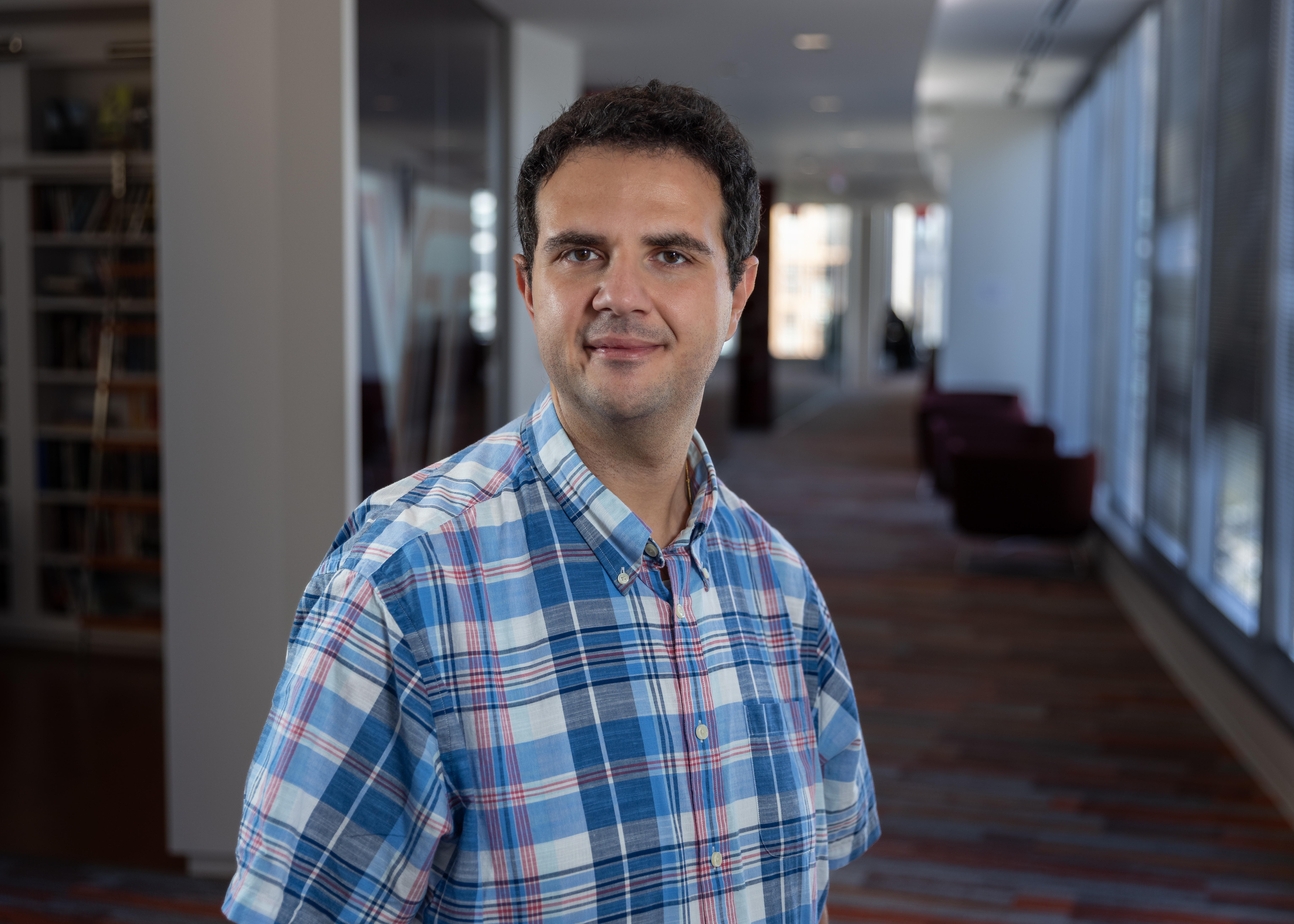From Quantum Connectivity to Quantum-Native Artificial Intelligence
Next: "From Antenna Abundance to Antenna Intelligence: Enabling Scalable 6G MIMO" by Professor Emil Bjornson, KTH
Join us for the exciting webinar series on "New Frontiers in Signal Processing in 6G Wireless Networks", a collaboration between IEEE Signal Processing, IEEE Communications Society chapters in Ottawa, and IEEE ComSoC Young Professionals. Kicking off on September 26th, this series features leading professors exploring the latest advancements in 6G technology. Don’t miss the first session!
Register now and stay tuned for updates on upcoming speakers and topics!
Date and Time
Location
Hosts
Registration
-
 Add Event to Calendar
Add Event to Calendar
Loading virtual attendance info...
Speakers
Prof. Walid Saad of Virginia Tech
Biography:
Walid Saad (S’07, M’10, SM’15, F’19) received his Ph.D degree from the University of Oslo, Norway in 2010. He is currently the Rolls Royce Commonwealth Professor in Digital Twin Technology, a Professor at the Department of Electrical and Computer Engineering, and a founding faculty of the Institute for Advanced Computing at Virginia Tech, where he leads the Network intelligEnce, Wireless, and Security (NEWS) laboratory. His research interests include wireless networks (5G/6G/beyond), machine learning, game theory, quantum communications/learning, security, UAVs, semantic communications, cyber-physical systems, and network science. Dr. Saad is a Fellow of the IEEE. He is also the recipient of the NSF CAREER award in 2013, the AFOSR summer faculty fellowship in 2014, and the Young Investigator Award from the Office of Naval Research (ONR) in 2015. He was the (co-)author of twelve conference best paper awards at IEEE WiOpt in 2009, ICIMP in 2010, IEEE WCNC in 2012, IEEE PIMRC in 2015, IEEE SmartGridComm in 2015, EuCNC in 2017, IEEE GLOBECOM (2018 and 2020), IFIP NTMS in 2019, IEEE ICC (2020 and 2022), and IEEE QCE in 2023. He is the recipient of the 2015 and 2022 Fred W. Ellersick Prize from the IEEE Communications Society, of the IEEE Communications Society Marconi Prize Award in 2023, and of the IEEE Communications Society Award for Advances in Communication in 2023. He was also a co-author of the papers that received the IEEE Communications Society Young Author Best Paper award in 2019, 2021, and 2023. Other recognitions include the 2017 IEEE ComSoc Best Young Professional in Academia award, the 2018 IEEE ComSoc Radio Communications Committee Early Achievement Award, and the 2019 IEEE ComSoc Communication Theory Technical Committee Early Achievement Award. From 2015-2017, Dr. Saad was named the Stephen O. Lane Junior Faculty Fellow at Virginia Tech and, in 2017, he was named College of Engineering Faculty Fellow. He received the Dean's award for Research Excellence from Virginia Tech in 2019. He was also an IEEE Distinguished Lecturer in 2019-2020. He has been annually listed in the Clarivate Web of Science Highly Cited Researcher List since 2019. He is the Editor-in-Chief for the IEEE Transactions on Machine Learning in Communications and Networking.
Email:
Address:United States
Agenda
Quantum technologies are poised to transform next-generation communication and artificial intelligence (AI) systems. This talk explores two key directions: (a) scaling quantum communication networks (QCNs) and (b) designing quantum-native reinforcement learning algorithms. Scaling QCNs across nodes and geographies remains a critical challenge for realizing a quantum Internet (QI) that integrates quantum security, computing, and machine learning. We examine quantum repeater networks (QRNs), that form the backbone for large-scale QCNs, with a focus on how to scale repeater counts and spacing to manage probabilistic entanglement operations while maintaining quality-of-service. We then investigate free-space optical (FSO) quantum channels, where reflective intelligent surfaces (RISs) can mitigate environmental obstacles in settings lacking conventional infrastructure. Beyond connectivity, enabling effective collaboration among distributed artificial intelligence (AI) agents emerges as a second major challenge—one where quantum technologies can offer transformative advantages. Existing multi-agent reinforcement learning (MARL) methods, including recent quantum MARL frameworks, typically rely on classical information exchange, limiting scalability and efficiency. To overcome this, we introduce entangled quantum multi-agent reinforcement learning (eQMARL): a quantum-native AI framework where quantum entanglement forms the core mechanism for coordination. In eQMARL, a quantum-entangled split critic links local observation encoders via entangled qubits, removing the need for explicit data sharing and reducing classical communication overhead. Joint quantum measurements enable coordinated policy updates with far fewer centralized parameters. Experiments show that eQMARL improves convergence tiem and achieves higher scores than classical and quantum baselines, and reduces centralized parameters significantly compared to the split classical baseline. We conclude the talk with an overview on important open problems in these areas, as well as some of our ongoing research activities.
As part of webinar series on "New Frontiers in Signal Processing for 6G Wireless Systems"



